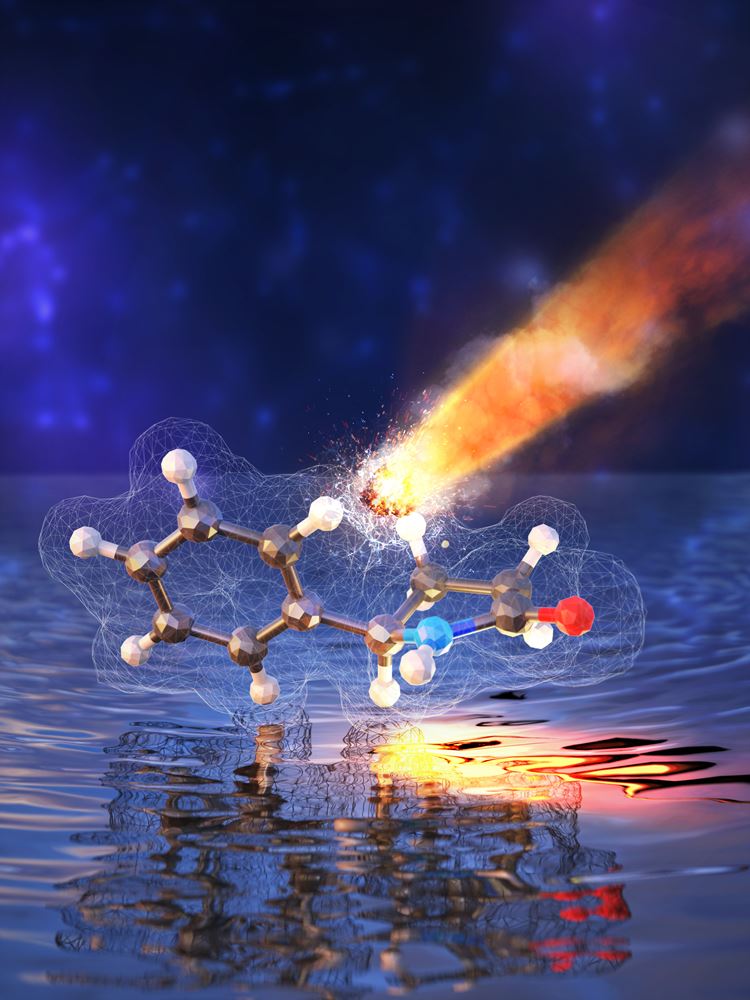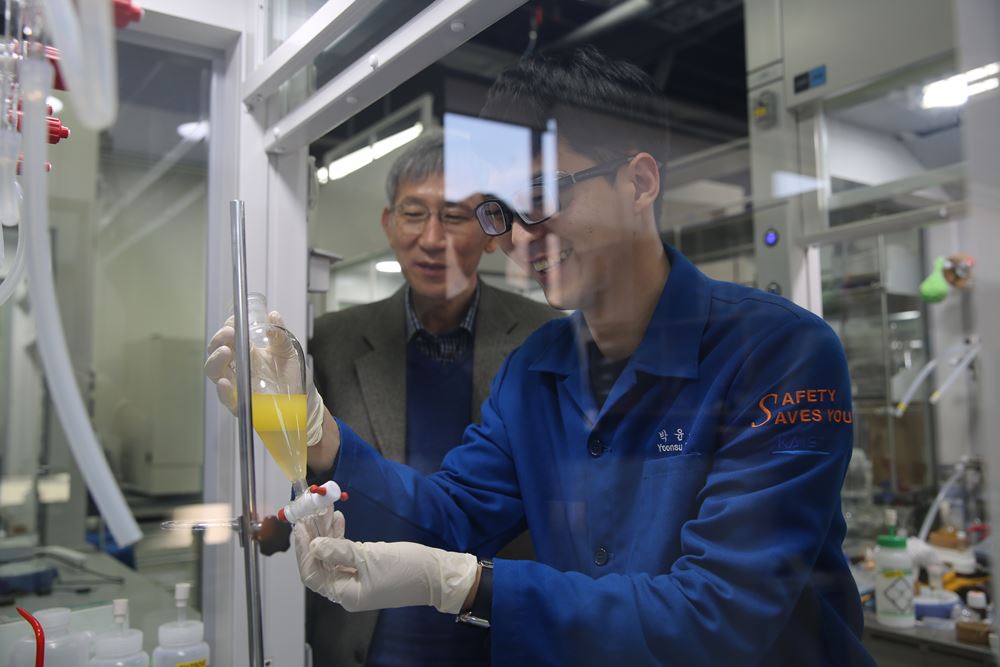mainmenu
Exploring the “philosopher’s stone” of these days
Exploring the “philosopher’s stone” of these days
Yoonsu Park, Research fellow at the IBS Center for Catalytic Hydrocarbon Functionalizations
“All materials on earth is made up of molecules. How we tweak their building blocks i.e. molecules characterizes properties of the materials, and also affects our understanding about them. Catalysts enables an easy and quick reaction to obtain materials that contain desired properties. It is like a “philosopher’s stone” of the day.”
“Philosopher’s stone” was the most sought-after goal in the world of alchemy, the medieval ancestor of chemistry. Philosopher’s stone was believed to be able to turn ordinary metals into precious metals like gold. It seems far-fetched from the perspective of the modern science. However, humanity’s pursuit of achieving magic-like results via the legendary object has been making significant progress thanks to catalysts.
Yoonsu Park, research fellow of the IBS Center for Catalytic Hydrocarbon Functionalizations is a rising star in the field of organic chemistry such as catalysis. Park explains, “As widely as molecular structures vary, their matching catalysts have as much as unique structures.” He adds, “My research aims to develop catalysts that enable to induce the properties that we have long sought to obtain, and to build the database of catalysts.”
![[피플 인터뷰 영상보기] 박윤수 IBS 분자활성 촉매반응 연구단 연구위원](https://www.ibs.re.kr/dext5data/2019/09/20190905_091011036_81479.jpg) Click to watch the video interview
Click to watch the video interview
Catalysis leads the way of chemical developments
90 percent of today’s chemical processing uses catalysts: from oil refining to plastic synthesis, and to manufacturing of fertilizers and pharmaceuticals. It is hard to find a sector in the chemistry where catalysts find no applications.

▲ Park is one of the researchers at the IBS Center for Catalytic Hydrocarbon Functionalizations who had reported new chiral iridium catalysts for the selective synthesis of chiral lactams at the journal Nature Catalysis.
Park has been devoting himself to designing a catalyst that enables an easy and quick reaction to obtain pharmaceutical materials. The key is to build nitrogen-containing compounds. Hydrocarbons are inexpensive and readily available feedstocks. Conversion of hydrocarbons into nitrogen-containing compounds is an important area of research. For example, gamma-lactams, a nitrogen-containing ring, find several applications in medicinal, synthetic, and material chemistry. The challenge lies in breaking strong carbon-hydrogen (C−H) bonds, and converting them into carbon-nitrogen (C–N) bonds in a controlled fashion. The reaction immediate quickly breaks down into unsought products.
Park worked with professor CHANG Sukbok and BAIK Mu-Hyun in finding a breakthrough to this long-standing challenge. The research team designed an iridium-based catalyst, highly selective for the gamma-lactam formation. In this way, the undesired pathways were systematically shut down, leaving the formation of the nitrogen-containing ring as the only possible outcome. This new synthetic technology gives much easier access to these complicated molecules and will enable the development of potential drugs in a much shorter amount of time at a lower cost. Their study was published at Science in March 2018. Park explains “Before our study, existing technologies were quite inefficient as they required a large number of metals or oxidants. There were also environmental issues due to toxic byproducts.” “We had found solutions in the catalyst that enables an easy and economically efficient production of useful compounds,” he adds.
Aiming to design more economically efficient catalysts and to be independent from imports
Catalysis contributes to more than 35% of the world's gross domestic product, according to the American Chemistry Council. It seems safe to say being a leader in the study of catalysis is to be a global leader in the industry. However, highly-functional catalysts, i.e. rare earth metals are extremely expensive and mostly imported.
“Rare earth-based catalysts are known to be pricey. Its price is increased 1.5 folds compared to five years. In addition to the high price, the import process can become quite complicated, threatening the secure supply of materials for research,” notes Park.

▲ Dr. Park and professor Chang.
It is Park’s constant endeavor to find easily available catalysts that can replace rare-earth catalysts. Iron-based catalysts are one of such alternatives. Irons are quite rich in iron ores. “If we can induce irons to generate the same catalytic activity as iridium, or if we can synthesize more efficient catalysts, that will be a boon to this research field,” says Park.
Park’s another study is about designing the most efficient chemical reaction with the minimum supply of catalysts. In his 2015 JACS paper, Park reported a novel reagent Dioxazolone. The new chemical compound enables to reduce the required amount of rhodium, a very pricey catalyst by 60%.
“The same metal may display very different catalytic efficiency depending on its structure and synthesis technologies. It requires highly professional skills to to design metal catalysts from scratch and induce a chemical reaction. The IBS Center for Catalytic Hydrocarbon Functionalizations is the leader in this challenging field.
Dahee Carol Kim
IBS Science Communications Team


